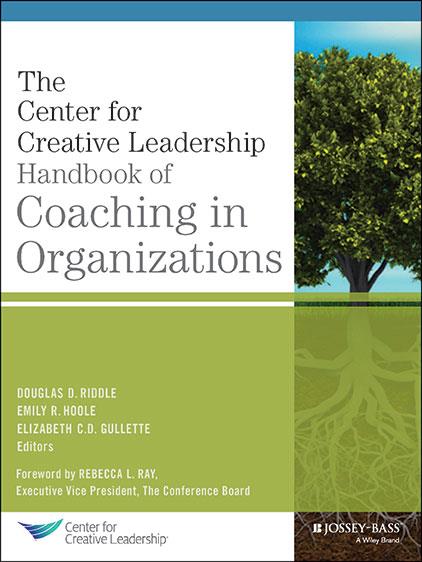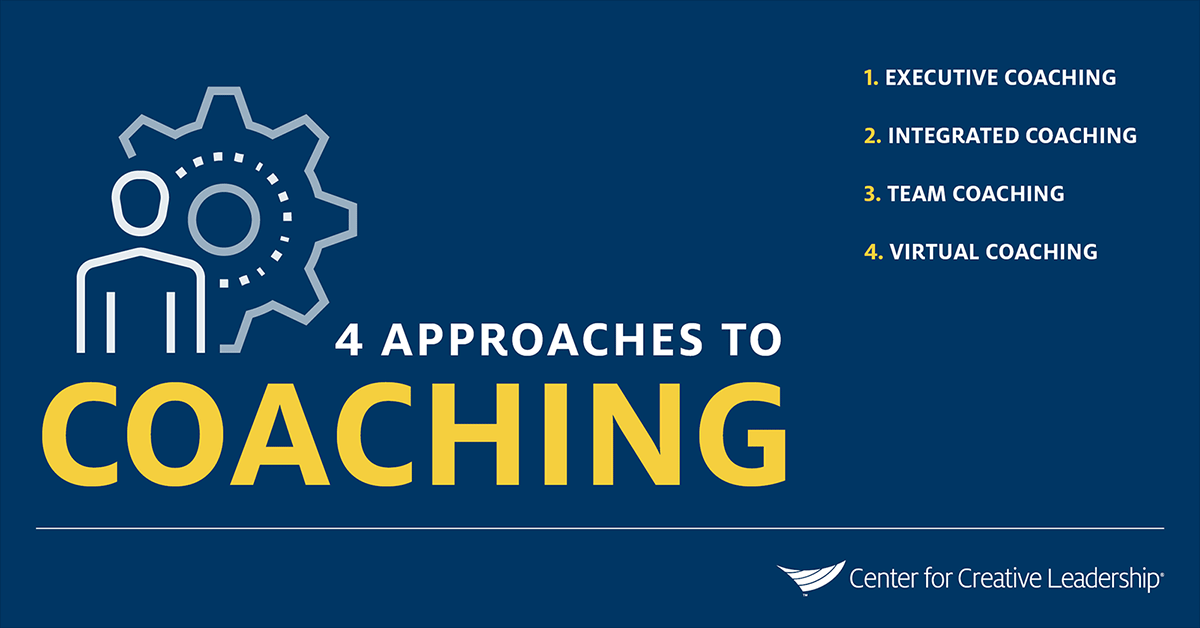Explore the Different Types of Coaching in the Workplace
We often hear a lot about it, but what exactly is coaching in the workplace? It’s a training method that prompts leaders to clearly address objectives and support their direct reports, giving them space to communicate and receive guidance. In fact, coaching is a proven method for increasing individual performance, but organizations are moving beyond the “one coach, one executive” approach. Instead, teams are considering multiple coaching approaches to drive accountability, development, and performance at all levels.
Here are 4 types of coaching in the workplace that you and your organization should consider:
4 Approaches to Coaching at Work
1. Executive Coaching
Executive leadership coaching is one of the most common and widely understood types of coaching in the workplace. It’s an effective way to strengthen the performance of your most important leaders, assist them in making key transitions, and enable them to alter behaviors that may be hindering their performance.
Executive leadership coaching typically kicks off with a matching process to ensure a good fit between the coach and the participant, followed by one or more assessments and alignment meetings with key stakeholders.
During the coaching engagement, the coach may help the executive understand and use information from assessments, create and work through a development plan, and address specific business and interpersonal challenges.
The personal, supportive environment provided by an executive coach can foster new ways of thinking, acting, and influencing to achieve significant business results. Learn more about how executive coaching elevates performance and how this type of coaching provides leaders much-needed support.
2. Integrated Coaching
Integrated coaching is an approach that embeds coaching sessions into — or wrapped around — a broader leadership development program or initiative. It can reaffirm and reinforce lessons learned in leadership training.
For example, an organization running a development program for high-potential, mid-level managers might include a coaching element — or a series of 2-5 coaching sessions — designed to help participants in the program reflect, deepen, and apply what they’re learning in the development experience.
Though often over a shorter term than executive coaching engagements, this type of coaching in the workplace can help ensure that leadership development learnings “stick.”
3. Team Coaching
Team coaching is effective at all levels — from the C-suite to front-line teams. It’s another key type of coaching in the workplace because even high-performing individuals can sometimes struggle to work together effectively.
Team coaching includes a variety of methodologies and formats aimed at fostering healthy interactions and high performance.
These may be fairly structured and prescriptive, such as during a retreat where a coach has worked with the team’s leadership to create the agenda and then facilitates the meeting, possibly even teaching content.
Team coaching may also include methods that are less scripted, such as helping a project team interact more effectively or facilitating a process that evolves in unplanned ways. Sometimes a coach may observe a team in its normal work environment and provide coaching based on those observations. Learn more about the dynamics of team coaching.
4. Virtual Coaching
Virtual coaching is now the most common type of coaching in the workplace. Even before the recent spike in working remotely, organizations were becoming more global, virtual meetings were becoming more prevalent, and virtual coaching was on the rise.
Now, this type of coaching has become totally commonplace, and all of the previously mentioned types of coaching in the workplace — executive, integrated, and team coaching — can be delivered virtually.
Virtual coaching is an ideal option for teams that span countries and time zones, as well as for those interested in a coaching arrangement they can easily integrate into their hectic schedules. Through the use of video, a virtual coach is able to engage and facilitate in the same manner they would in a face-to-face setting. Additionally, the coach matching process is not limited to geographic and travel constraints, which often increases compatibility and flexibility.

If you’re designing, initiating, or implementing coaching programs, explore our actionable guidance on new approaches and techniques that drive better outcomes.
The Ultimate Goal: Cultivating a Coaching Culture
For many organizations, instilling a coaching culture is the ultimate goal. Building a coaching culture involves more than simply providing lots of different types of coaching in the workplace; it focuses on shifting unwritten rules, values, norms, behaviors, and practices to spread a coaching mindset and coaching practices throughout the organization so that coaching becomes a key part of their company’s identity. A coaching culture improves not only the way employees interact with each other, but also the interactions they have with customers and potential clients.
Typically, organizations that seek to develop a coaching culture have experience leveraging at least one of these different types of coaching, have seen the positive impact, and now want to better their culture by building coaching conversation skills and making coaching more broadly available.
Ready to Take the Next Step?
We can partner with your organization to craft any of these different types of coaching in the workplace into a custom solution for your unique context and culture. Learn more about our high-impact virtual coaching solutions, or infuse a coaching culture throughout your organization by building your people’s coaching skills.











